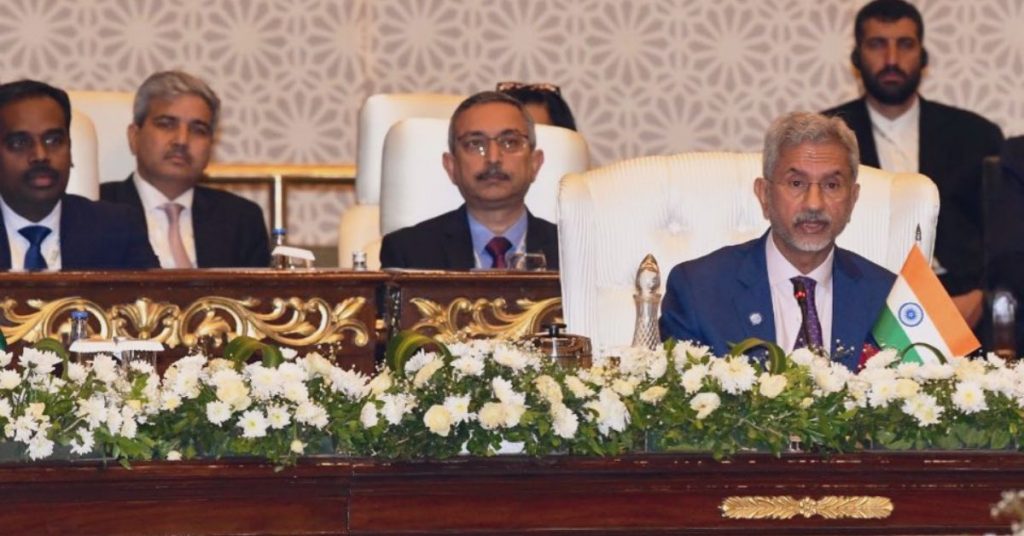
[ad_1]
ISLAMABAD: Indian Foreign Minister Subrahmanyam Jaishankar’s speech at the 23rd meeting of the Council of Heads of Government of the member countries of the Shanghai Cooperation Organization (SCO) is contradictory at many points from blaming Pakistan for terrorism to selective regionalism.
Pakistani analysts view Jaishankar’s speech as a blend of diplomatic posturing and selective narratives aimed at promoting India’s geopolitical agenda.
While acknowledging Pakistan’s presidency of the SCO, the speech reflects familiar criticisms of terrorism that seem aimed at Pakistan. The repeated emphasis on “three evils” (terrorism, separatism, extremism) could be seen as targeting cross-border concerns, without addressing India’s internal challenges, such as in Kashmir, Manipur, or Assam.
Indian Minister of External Affairs acknowledged Pakistan’s presidency, which seemed as a mere diplomatic
formality. The reality of bilateral relations between India and Pakistan remains strained, especially with India’s stance on regional disputes and limited high-level diplomatic engagement.
Moreover, the top diplomat from a neighboring country stressed the need for cooperation based on territorial integrity and sovereign equality, which holds a hidden criticism to indirectly criticize the China-Pakistan Economic Corridor (CPEC), which India has consistently opposed.
The remark was in contradiction to India’s initiatives promoting its own connectivity ventures in Central Asia and highlighting its stance against regional projects linked with Pakistan.
The speech also outlined several areas for regional cooperation — trade, MSMEs, connectivity, and climate action. However, India’s refusal to participate in regional projects, like the SAARC, and its restrictive trade policies with Pakistan, contradict this vision.
It reflects India’s position for selective regionalism, undermining the potential for genuine collaboration within platforms like the SCO.
Jaishankar also called for UN Security Council reform aligning with India’s long-standing ambition for a permanent seat, which is aimed at securing disproportionate global influence, undermining Pakistan’s stance for equal representation of smaller states in multilateral institutions.
[ad_2]
Source link





